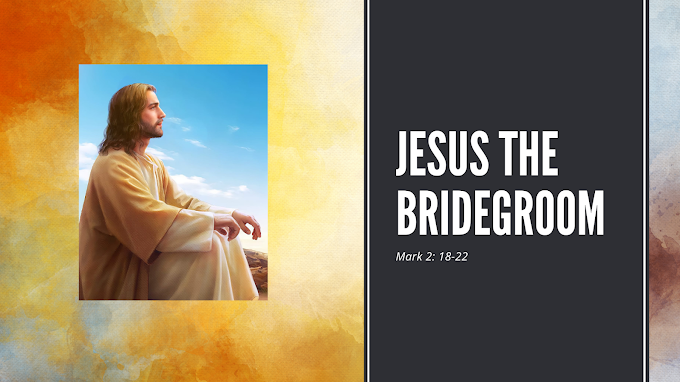Jesus public life begins with his baptism by John in the
Jordan. Being sinless why Jesus received the baptism from John the Baptist. We
read in the Gospel of Luke, John preaches “a baptism of repentance for the
forgiveness of sins” (Luke 3:3). A crowd of sinners, tax collectors and
prostitutes come to be baptized by him. Jesus received baptism not because he
is a sinner but because of his total solidarity with sinful humanity, solidarity that begins now and will lead inexorably to the Cross. Indeed, Jesus
baptism is an anticipation of his passion. Immersion in water is a symbol of
death.
Jesus’ baptism is a turning point in his life. With this
event, he is “anointed” by the Spirit and formally inaugurates his mission as
Messiah. By sharing in Israel’s baptism of repentance, he has committed himself
fully to the Father’s call on his life: to be the obedient servant who would be
innocent yet counted among the wicked because he bears the sins of many. Some
symbols signify our salvation in this Gospel, on coming out of the water Jesus
saw “the heavens being torn open: the Greek verb used here is schizo means
to rip or tear. Heaven was thus torn open at the sound of God’s voice and the
descent of the Spirit (Isaiah 64:1). At the final part of the Gospel, this same
verb depicts the tearing of the Temple veil (15:38), and episode similarly
accompanied by a declaration of Jesus’ Sonship (15:39).
Here we see “the Spirit, like a dove, descending upon
him.” The dove is an image with various associations in the Bible. A close
connection with the Spirt and dove is in Genesis: as the “Spirit of God”
hovered over the waters at creation (Genesis 1:2), so Noah sent forth a “dove”
to hover over the floodwaters once creation was cleansed and renewed (Genesis
8:10-12). So with the baptism of Jesus, there is a new creation takes place and
the Sprit like a dove hovers over the waters like Genesis.
Catechism of the Catholic Church teaches us, “The baptism
of Jesus on his part the acceptance of his mission as God’s suffering servant.
He allows himself to be numbered among sinners; he is already “the Lamb of God,
who takes away the sin of the world.” Already he is anticipating the “baptism”
of his bloody death. Already he is coming to “fulfil all righteousness,” that
is, he is submitting himself entirely to his Father’s will: out of love, he
consents to this baptism of death for the remission of our sins. The Father’s
voice responds to Son’s acceptance, proclaiming his entire delight in his Son.
The Spirit whom Jesus possessed in fulness from his conception comes to rest on
him. Jesus will be the source of the Spirit for all mankind. At his baptism
“the heavens were opened” the heavens that Adam’s sin had closed and the waters
were sanctified by the descent of Jesus and the Spirit, a prelude to the new
creation.” (CCC 537).
As God’s beloved Son, Jesus embodies Israel, who was
called God’s son but could never fully live up to that status. Yet God’s words
of affirmation and love precede Jesus accomplishment of his mission and are not
a result of it. The New Testament proclaims that all of Jesus’ followers have
become children of God, participating in his relationship with the Father.
Thus, these words are spoken to each one of us as well: “You are my beloved
Son,” “You are my beloved daughter.” Only in accepting our identity as a beloved
child of the Father is it possible for us to embark courageously on the mission
to which God has called us.”
When we remember the Baptism of Jesus it reminds us of
our baptism. Every Christian sacramentally joins with Jesus, with his or her
baptism. “The Christian mystery of humble self-abasement and repentance, go
down into the water with Jesus to rise with him, be reborn of water and the
Spirit to become the Father’s beloved son and daughter” (CCC 537).







0 Comments
Do not enter any spam link in the comment box.